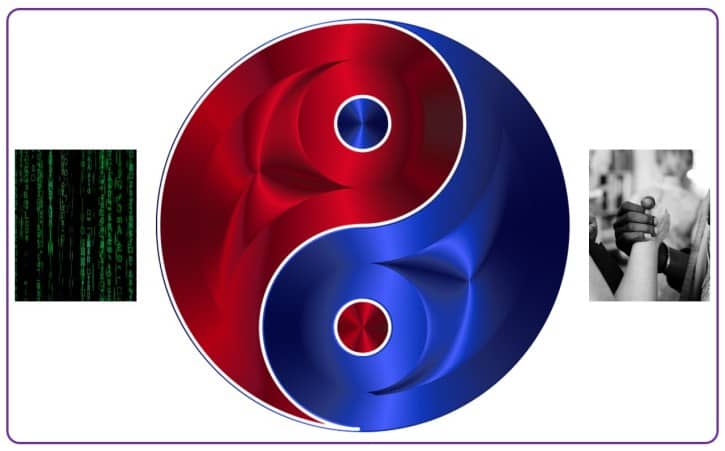The two paradigms of culturalism and computationalism can help us to learn about schools, education and learning.
If society is becoming increasingly polarised then we can only expect discourse to be characterised by dispute, opposition, and disagreement. Many respectable and legitimate political, religious, intellectual and other social interests have been affected disproportionately by opinions that are extreme, uncompromising and divisive. Under the masks of online identities, it seems that many feel able to voice opinions and give expression to ideas that repulse, horrify, and disgust others. We may have hoped political leaders and other high profile personalities would have set good examples of online communication but clearly many have not and there is a danger that the divisive rhetoric that is now so familiar on social and other forms of media is becoming normalised.
It is very common also for discussions within education to be characterised by falsely exaggerated oppositions. Often arguments are presented as ‘distillations of all that is good and bad’ (Hammersley, 2006, p. 159) so that writers can achieve greater clarity about what they are arguing for and what they are not. This discussion focuses on two traditions; computationalism and culturalism (Bruner, 1997), and how they manifest themselves within education but I would hesitate very much in suggesting that these were opposed traditions, though it is tempting to deem them as such. The more experience of education I accrue (over 25 years now!) the more I find the duality and sometimes misalignment between these two concepts helpful in enabling me to understand why things in education go wrong and why this is not inevitable. Even now I sense a temptation to suggest that either side is more guilty than the other here but this would misrepresent the argument. Recent technological revolutions have however influenced our cultural settings in very significant ways and this poses considerable challenges for those who work in education and for teachers and requires us to rethink what we mean by learning, meaning and identity. In many respects it is the interaction between these two traditions that lies at the heart of the societal polarisation mentioned above. Click on the links below to read on about what is meant by these two traditions and what this means for the educator.
Introduction
Does this chime with any of your thinking? Post comments below:

